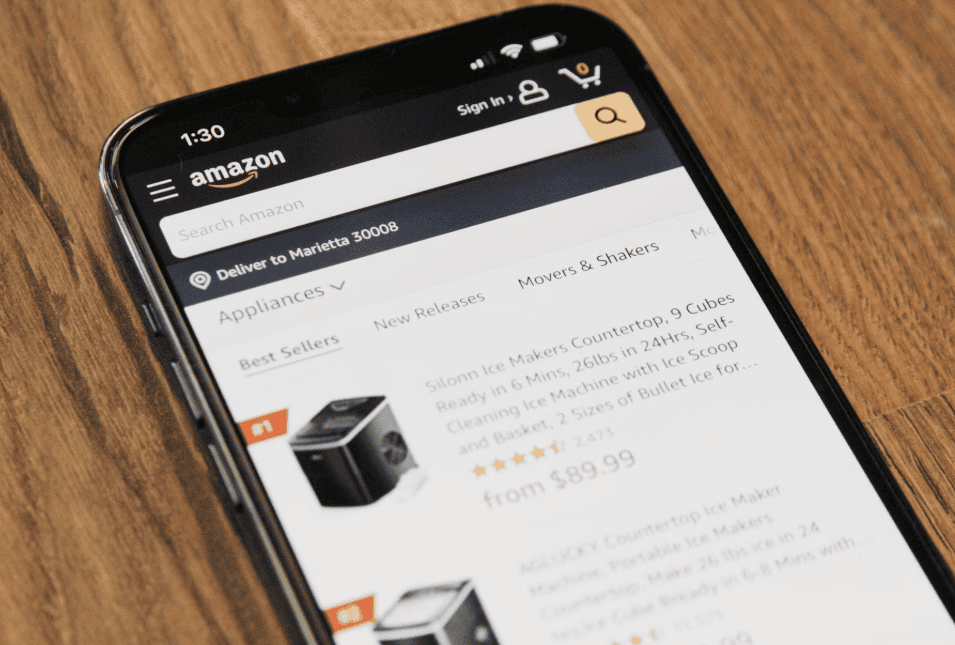Starting an Amazon FBA business presents a compelling opportunity for entrepreneurs aiming to leverage one of the world’s preeminent online retail platforms. In 2023, Amazon reported a staggering total consolidated net sales revenue of $575 billion, showcasing the vast scale and growth potential of the platform.
This significant financial performance underlines the opportunities available for new sellers to enter the market, even those operating with limited budgets. It’s crucial to begin with a well-defined plan emphasizing targeted, effective steps designed to reduce risks and enhance profitability. We will explore various strategic methods to start your Amazon FBA venture economically, emphasizing actionable tactics that deliver tangible outcomes.
Understanding the Basics of Amazon FBA
Amazon FBA, or Fulfillment by Amazon, offers sellers access to its extensive distribution network. This service encompasses the management of storage, selection, packaging, and delivery of your products, as well as handling customer service issues. Additionally, Prime-eligible products through FBA benefit from faster delivery times, enhancing their appeal to the extensive base of Amazon Prime subscribers.
Understanding these processes is critical as they substantially streamline the logistical and customer service aspects of your Amazon FBA business operation, enabling you to focus on broadening your product offerings. Mastery of these foundational aspects is crucial for the efficient operation and management of your business’s logistics, facilitating a smoother expansion and potential scale-up of your product lines. This operational efficiency is essential for leveraging the full capabilities of the FBA system to support and grow your e-commerce venture effectively.
Market Research and Niche Selection
Selecting the ideal niche is critical. The process involves aligning your interests with market demands and competitive intensity. Begin by pinpointing niches where there is substantial demand yet moderate competition, allowing your products to gain visibility without substantial initial marketing expenditures. Utilize analytical tools such as Jungle Scout, Helium 10, or Amazon’s Best Sellers lists to pinpoint categories and subcategories that are performing well. Search for emerging trends or overlooked opportunities where well-established competitors might not be active.
Sourcing Products Economically
The cost-effectiveness with which you source products plays a decisive role in shaping your profit margins. Evaluate both local and international suppliers, bearing in mind that while suppliers abroad might offer cost benefits, these can be offset by longer delivery times and increased shipping fees. Forge strong relationships with your suppliers to secure more advantageous pricing and terms.
Also, consider contacting local producers or craftspeople who can offer distinctive or customizable products that differentiate your offerings. Participating in trade shows and navigating online marketplaces are also effective ways to discover new suppliers who might provide competitive prices and favorable terms.
Lean Inventory Management
Implementing a lean inventory strategy reduces your initial financial outlay. Begin with a modest amount of stock to evaluate the market’s response. Employ Amazon’s analytics to track performance across different products and allocate more resources to the ones that sell well. This tactic not only preserves your financial resources but also minimizes the chances of accumulating unsold inventory. Utilize forecasting tools to gauge future demand accurately, ensuring that you do not lock funds in inventory that does not move. Such practices keep your operation flexible and attuned to consumer demands.
Optimizing Listings and Marketing on a Budget
Think of your product listings as the front window of your virtual store. Enhance these listings with crisp, high-resolution images and thorough, SEO-friendly descriptions to boost both discoverability and attractiveness to shoppers. Prioritize fundamental search engine optimization to raise your product’s visibility in search results. Although Amazon’s pay-per-click advertising offers a direct path to increased visibility, incorporating no-cost marketing strategies, such as social media engagement, can be equally beneficial, especially on platforms frequented by your ideal customers.
Broaden your audience by partnering with niche micro-influencers who can advocate for your products affordably, adding substantial value to their followers. Active participation in Amazon’s Q&A and reviews section also helps to elevate product visibility and fosters consumer trust.
Keeping Overheads Low
Reducing unnecessary expenses remains essential when you’re working within a financial plan. Prioritize lowering storage fees by opting for products that move quickly and occupy minimal space. Use Amazon’s detailed reports and analytical tools to monitor all fees and additional costs tied to your account to avoid any unexpected charges.
Implement automation through cost-effective software or tools that enhance the efficiency of inventory handling, shipment coordination, and tracking of performance metrics, thereby conserving both time and resources. It’s advisable to frequently assess your operating expenses against industry standards to uncover areas where costs can be cut, for example by adopting more economical packaging materials or by securing more favorable shipping terms.

Conclusion
Launching a budget-friendly Amazon FBA business is entirely feasible with the correct approach. Mastery of Amazon FBA’s core functions, in-depth market analysis, economical procurement of products, smart inventory control, effective listing optimization, and diligent management of overhead costs lay the groundwork for a thriving venture. Incremental and steady enhancements to your operational methods and tactics can greatly improve the profitability and expandability of your business over time. As you develop your business incrementally, maintaining patience and determination will prove to be invaluable assets.




